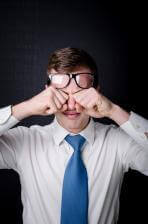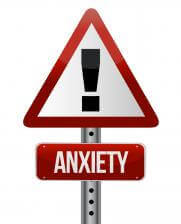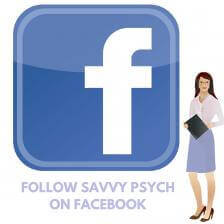Why Am I So Tired?
Sometimes there’s no clear medical reason for flagging energy and dragging drive. And sometimes the tried-and-true trio of sleep, diet, and exercise doesn’t help as much as we wish. Savvy Psychologist Dr. Ellen Hendriksen offers 7 possibilities, some common, some not-so-obvious, for why you may be tired.
Ellen Hendriksen, PhD
Listen
Why Am I So Tired?

There’s physically tired: heavy limbs, moving through metaphorical mud, or drowsy eyes. But there’s also emotionally tired: lack of motivation, feeling unable to deal, and the most common: “I just don’t feel like it.”
(correction_with_script)
Fatigue can be a medical issue stemming from anemia, thyroid issues, pregnancy, cardiovascular problems, or other culprits. House Call Doctor discusses the top 9 medical causes of fatigue here.
To round out the possibilities, we’ll look at fatigue from psychological sources. We’ll use 3 perspectives: diagnosable disorders, exhausting situations that may be sapping your energy, and tiring states of mind.
Let’s start with two diagnosable disorders that include fatigue in their constellation of symptoms:
Tiredness Culprit #1: Depression
Depression results in both physical and emotional fatigue—you not only have no energy, you also have no motivation. Either way, it feels like both mind and body are slogging through knee-deep sludge. Everything is an effort, perhaps even getting out of bed or taking a shower.

Depression is particularly tricky, because sleep, even lots of it, doesn’t relieve the fatigue. On the flip side, depression can also mean sleeping too little—trouble falling asleep, waking up in the middle of the night, or waking hours before the alarm goes off, with only crickets and the occasional siren for company. Either way, feeling tired—often a hopeless, meaningless exhaustion—is the result.
Tip: Depression is awful. I won’t pretend that a quick tip (Think positively! Do yoga! Cut out gluten!) can make depression vaporize.
Believe me, if it were a matter of employing a quick tip, the 10% of Americans who suffer from a depressive disorder would have done it by now. Enlist the help of a physician or psychologist—or better yet, both—if you suspect depression. Shop around until you find qualified providers you like and trust.
If I may offer a tip, it is this: Show up. It may all seem pointless and empty in the moment, but go through the motions of doing things you used to like to do. See your (true) friends even if you are an irritable grump. Exercise even when it seems stupid. Show up to work. Show up to class. Show up and show up again. You won’t feel ecstatic, but you’ll feel better than if you don’t go. You won’t get better and then rejoin life; you’ll get better, in part, by rejoining life.
Tiredness Culprit #2: Anxiety
Worry is exhausting! Vigilance is strenuous. All that tension is draining. Even the classic leaking of anxiety from the body—the jumpy leg—is tiring. Worrying about things all the time—a constant, draining buzz of worry that gets in the way of living your life—is called Generalized Anxiety Disorder. Key symptoms are being easily fatigued, tense muscles, feeling on edge, and disturbed sleep: in short, a recipe for exhaustion.

Anxiety is nature’s way of telling you something might not be safe, but it is often wrong. The cure for anxiety, counterintuitively, is to do the very thing you’re afraid of. You don’t have to jump in with both feet; you can start small, then grow from there. Visualize getting on the plane. Write one paragraph of your novel. Write out what you’d say if you were brave enough to pick up the phone. In a nutshell, the old “face your fears” adage really is true.
Sometimes, anxiety is more about “what ifs.” “What if someone kidnaps my daughter?” “What if the car crashes?” “What if the committee hates my submission?” Shift your focus from the endless terrifying possibilities of “what if” to what’s happening right now. Describe what’s going on around you. What can you see, hear, feel, and smell? Scan your body and notice how it feels. What are you thankful for? What is going well? To copy Oprah, what do you know for sure? Ground yourself in what is rather than letting what ifs pull the rug out from under you.
Next, let’s move on to states of exhaustion caused by a situation:
Tiredness Culprit #3: Caregiving
Taking care of a loved one with chronic illness or raising a special needs child is exhausting, and I mean marathon-every-day kind of exhausting. As one caregiving patient put it, you know you’re a caregiver when going to the grocery store feels like a treat.
Tip: You are a hero, but not a sacrificial lamb.
When you’re on the high wire of caregiving, you need a safety net. Say “Yes!” when others ask, “Is there anything I can do?” If possible, create a system where you delegate or trade off with others (check out my article on How to Ask for Help).
Learn about services in your community from adult day care centers, special needs or integrated playgroups, respite care, transportation services, and grocery and pharmacy delivery. See yourself as the coach of a team, not as every single player. Finally, allow yourself to feel what you feel and then get support—suppressing resentment or guilt is wearying, plus it will just leak out in other ways.
Tiredness Culprit #4: All Eggs in One Basket
A singular focus can feel virtuous: workaholism, unwavering focus on a child, a never-apart relationship. If it works, it’s devotion, but if it doesn’t, it’s a drain. Often, it ties you too closely to one outcome. In the inevitable rise and fall of life, even a minor setback can feel devastating if you’re not cushioned by other interests and values.
Tip: Wear more than one hat.
An oft-cited 2011 study showed that working moms, particularly part-timers, have better health and less depression overall than stay-at-home moms. This certainly doesn’t doom stay-at-homers to depression, but the message is that several (manageable) roles create a buffer: if one area of life isn’t going well, hopefully the others are. A traditional version is work and family, but in today’s world, anything goes.
One happily single marathoner friend says of “work, friends, and running,” she needs at least one to be going well. So even with shin splints and a boss on a rampage, she takes refuge in friends who feed her emotional energy and get her through.
In another example, a chronically ill patient of mine found herself slowly becoming a “professional patient,” with a life comprised only of doctor’s appointments—a surefire way to drain the life from her….well….life. She pushed back by investing her energy not only in managing her illness, but also in her grandkids and an online shop for her artwork.
In a final example, a recently retired patient was referred to me for unexplained fatigue. Work had been his identity. Together, we determined that his fatigue stemmed from purposelessness and meaninglessness. A combination of going back to work part time, volunteering, and joining the local choir reinvigorated him.
Tiredness Culprit #5: Clutter
Yes, this is a surprising contributor to fatigue. Stuff is a double-edged sword. On the one hand, stuff can make you feel secure. I know women who carry three purses at a time and men with a car trunk full of stuff “just in case;” it makes them feel prepared. If it’s not hurting you, go for it. But sometimes stuff can drag you down. Teetering piles, clutter with no designated place, and maddening numbers of lost items make home an exhausting stressor, not a refuge.
Tip: If your stuff costs you more than it buys you (for instance, you can’t invite people over, can’t use your home as intended, or feel like stuff runs your life), then see #6 Feeling Overwhelmed below.
If you know clutter is draining your energy but can’t bring yourself to donate or toss, ask yourself what you are really keeping. Security? Happy memories signified by stuff? Information in the form of paper? Is there another way to find what you’re seeking? Would the security/happy memories/information truly be lost if you didn’t have the stuff to signify it? Test out the idea by getting rid of a few items. A week later, see if you miss them as much as you predicted.
Finally, here are two states of mind that drain energy:
Tiredness Culprit #6: Feeling Overwhelmed
“I’m too tired” may be code for “I can’t do this,” or “I don’t know where to start.” Facing an overwhelming task often stops us in our tracks. We are too tired to deal. We just don’t feel like it. For instance, a patient of mine really wanted to change careers but never made any progress. She wrote it off as being too tired, until she realized she procrastinated, putting her energy towards other things first. Career change stuff always came last, when she was exhausted, so nothing got done. Instead of treating it as if she were tired, she began to treat it as if she were facing a challenge, and did the following:
Facing an overwhelming task often stops us in our tracks. We are too tired to deal.
Tip: To stop procrastinating, break the task down.
Start with a bite-sized chunk that doesn’t drain your energy away. Cleaning an attic becomes going through one box. Writing a 20-page paper becomes working on the outline for 15 minutes. In the case of my patient, changing careers began with searching online for personal training certification programs. After the bite-sized chunk, it might be time to stop for awhile. Or—a pleasant surprise—the gathering momentum may carry you beyond the first chunk. So start small. Chunk by chunk, chip away.
Tiredness Culprit #7: Boredom and Underexertion
Everyone needs the occasional bout of eating peanut butter from the jar while mindlessly surfing YouTube. But if a multi-day run of cable TV in your pajamas makes you feel slow and cotton-headed, it’s not a break anymore. Staying in the house all day with no purposeful activity is oddly more exhausting than a pleasantly full schedule.
Tip: Behavioral psychologists describe a technique called “acting as if.”
Act as if you’re exhausted—pjs, no shower, lying around all day—and you will probably feel exhausted. The bright side? It works in reverse: act as if you have some energy—stand a little taller, put a spring in your step—and you’ll feel more energized. Put on some makeup or shave, even if you’re staying in. Brush your teeth even if you’re not talking to anyone. Act as if, and your energy will follow.
Overall, whether you’re worn out, weary, zonked, drained, or just plain tired, pinpointing a culprit—physical or psychological—is the first step in moving from “I don’t feel like it” to “I’m ready for anything!”
Get more savvy by subscribing to the podcast on iTunes or Stitcher, or get the episode delivered straight to your inbox by signing up for the newsletter. Plus, follow me on Facebook and Twitter.
https://www.quickanddirtytips.com/newsletters
References
Centers for Disease Control and Prevention. (2010). Current Depression Among Adults—United States, 2006 and 2008. MMWR, 59, 1229-1235.
Buehler, C. and O’Brien, M. (2011). Mothers’ part-time employment: Associations with mother and family well-being. Journal of Family Psychology, 25, 895-906.
Dr. Ellen Hendriksen is a clinical psychologist at the Stanford University School of Medicine. Ellen graduated from Brown University, earned her Ph.D. at UCLA, and completed her training at Harvard Medical School. In her clinic, she treats everything from depression to trauma to panic, but she has a special place in her heart for anxiety disorders. Ellen is also an active research scientist and develops therapy programs for individuals and families living with chronic illness. She lives in the San Francisco Bay Area with her husband and two sons, ages 5 and 2.
;
Couch potato, tired businessman, and other images courtesy of Shutterstock.


